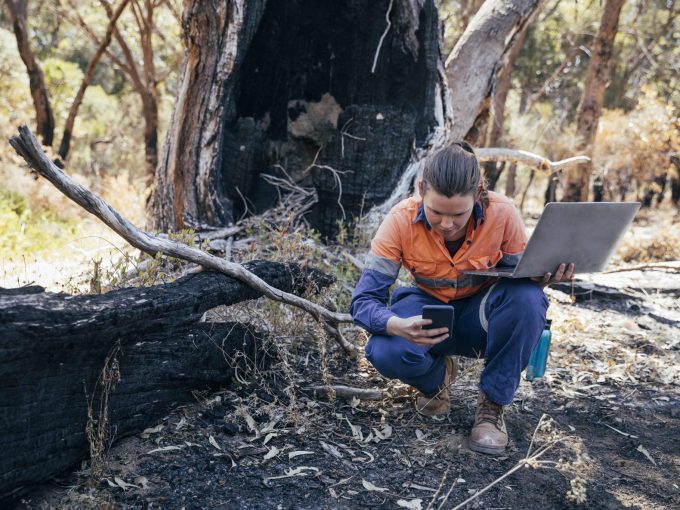Doing a PhD is about becoming an academic scholar. Whether or not you want to be an academic in the future, for the period of time you are doing a PhD, you are doing an academic apprenticeship.
What this looks like can vary widely, but there is arguably one constant: you are going to write into “the academic literature”. Your thesis is a contribution to this literature whether or not you publish from it separately.
It is useful to remember that “the literature” is not just a source of information or static collection of resources, it is the cacophonous, expanding voices of the academic community that you are trying to join through your PhD. Combined with conferences and workshops (where papers in development are often represented) and other interactions between academics on social media etc, “the academic literature” is the key platform for, even manifestation of, the academic community.
There are arguably two broad reasons why the academic literature is so key to the academic community. On the one hand, it is accessible to everyone within academia (and beyond). If you want to cite or critique Distinguished Professor of Pontification, you are able to do so! No one has to gain permission to speak up. You do not have to have a licence to engage with literature from another field or country. You can even engage with people that have long since died as their voice lives on through their writing. As a platform of interaction, the academic literature is a continuously growing, shifting landscape of constant conversation. To join the conversation you need to know what has just been said, by whom, to whom, and to know therefore what is unique about what you want to say and who your target audience is.
On the other hand, another reason the literature is so key is that it is not a collation of every idea an academic has ever wanted to utter. It is highly filtered and structured. Part of doing your PhD is learning how these mysterious structures and filters work. Literature is ‘clumped’ according to murky and shifting boundaries that loosely differentiate different disciplines, fields, themes, paradigms, agendas, epistemologies, ontologies. In the social sciences, this clumping is especially multidimensional because of the importance placed on theoretical starting points, meaning that even colleagues in the one disciplinary area and studying the one topic may publish in almost completely different journals. While interesting and important, these differences can generate a paralysing anxiety about saying the wrong thing. One of the worst things about academia is the arrogant and close minded gate-keeping that can infect peer review processes; gate keeping which can undermine the supposedly democratic character of the academic literature. Learning which debates, authors and journals to avoid is part of the ‘street smarts’ you need in order to negotiate the complex landscape of the academic literature with your skin intact. Similarly, learning some of the protocols, expectations and language needed to have your contributions taken seriously is also important. While we can and should rail against these at some level (some of them are ridiculous anachronisms), at another specialised communication is just a feature of professional life. As with any professional or other cultural group, academics (in discipline X) have ways of communicating that can be nonsensical and exclusionary to others, but once you are somewhat literate in their academic speak, you will find it fast tracks dialogue and allows you to understand and contribute to debates of the day.
So what does this all mean for HDR students? There are numerous implications, but two are worth emphasising.
First, as you read the literature, treat it as a treasure map not just a narrative. Take careful note to always orient yourself. This can be hard as we jump from paper to paper online. But as you look at a list of publications on Google Scholar (for example), try to mentally colour code them into different types of conversations/fields and imagine how they all sit in relation to each other. The fact that such a diversity of publications is called up by the one search term is reason alone to be very cautious not to just base a literature review, for example, on the top 50. It is crucial to understand who is saying what and why, and that who begins with what field they are writing from. It is also shaped from who they are citing abd what debates they are interested in, as this gives you an indication of their academic community, at least for the paper in question. Then think about how this affects your own engagement with them. It is very rare to find a paper that is similar to our own work on the five key parameters of:
- Discipline/field – ie what journal is it in? what sort of journal is this?
- (Empirical) topic area/focal issue
- Theoretical lens/approach (note this can be at a coarse or fine grain level- eg at a coarse level you might note what sort of epistemology a piece is written from; at a fine grain level you may think about what specific analytical approach it uses)
- Specific problems or debates it identifies/engages with (eg a need for more X scholarship – often known as The Gap)
- Which specific authors or arguments it aligns with/distances itself from (and those you may be familiar with that it misses).
Second, imagine yourself as part of a particular academic tribe with a particular academic territory. Then imagine that you are a bit nomadic and like to go on tourist jaunts to other territories to see what they are doing. But the key is you always come back. Know who is your home crowd and who you are just visiting! Your home crowd (your people) does not have to be a formally recognised discipline field – it might be a smallish group of like-minded interdisciplinary scholars pushing the boundaries of old ideas and even working in disparate areas – but you still have to be able to name them. Try to imagine your three favourite academic authors and identify why you are drawn to them. Are they outliers in an otherwise uninteresting field, or are they exemplars of a “field” (loosely defined) that you want to be part of?
In terms of writing, a strong understanding of when you are in your home zone, and when you are visiting others helps highlight different opportunities. In addition to writing for those on your wavelength (e.g. engaging with a detailed conceptual debate, or offering up beautifully detailed empirical case of a sort you know they will relish), you can also write into a neighbouring field to introduce ideas from your home base that you have noticed could be useful. Understanding that you have different relationships with different parts of the academic community/literature can help you personally navigate it more effectively both in terms of identifying yourself and monitoring your reading and writing habits. It is especially critical for PhD students because your apprenticeship involves you becoming adept at this process of positioning – a kind of virtual networking. No PhD exists in a vacuum and no PhD student is speaking from nowhere. Future posts will further explore this question of knowing where you are speaking from.
This blog is written for HDR students in GUSS and beyond. The aim is to offer reflections, tips and tricks on various aspects of doing a PhD to help you with your thesis journey. Focused on the intellectual elements of the PhD, the idea is to complement the advice you all get separately from your supervisors, to pool ideas from across different academics, and foster learning and conversation. In these ways, we hope that the often implicit intellectual (and thus personal) demands of “doing a PhD” will be made a little clearer and easier.
The blog is led by Lauren Rickards (lauren.rickards@rmit.edu.au), deputy Program Manager of the GUSS HDR program, and co-leader of the Climate Change Transformations research program in CUR. Don’t hesitate to get in touch if you have any ideas or feedback.





